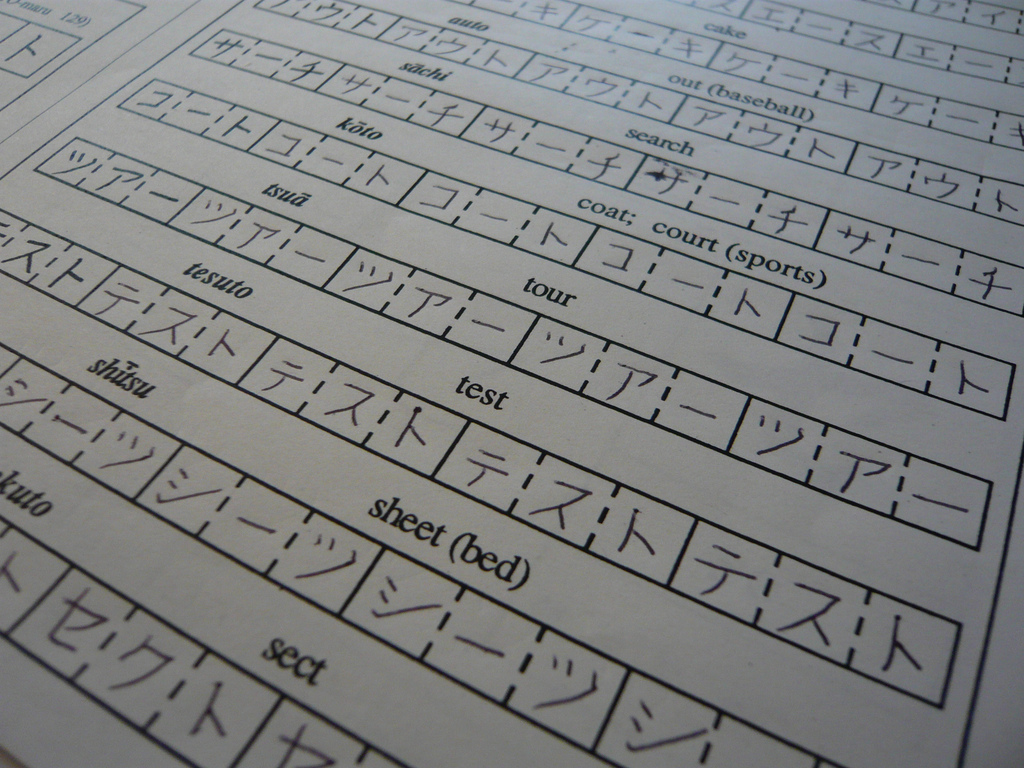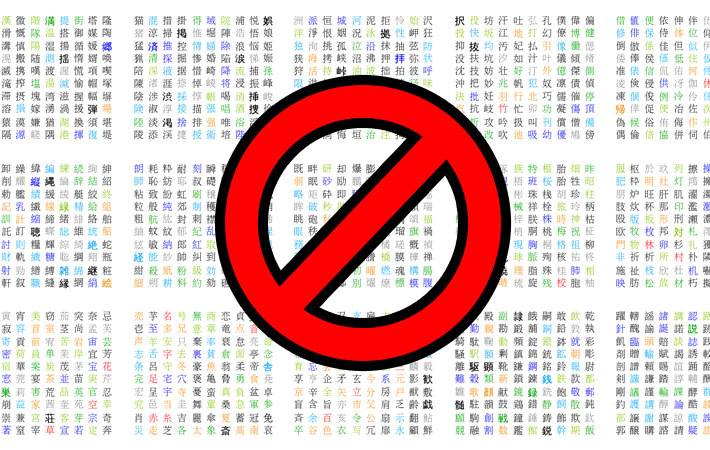If you're learning Japanese, one of the first things you do is learn what your name is in Japanese. It's great because it personalizes the language and gives you an identity in Japanese.
But sometimes there's a little confusion about how to write your name in Japanese. Let's look at the right and wrong way to write your name in Japanese.
Right: Katakana カタカナ
If you don't know a lot about Japanese, katakana is one of the Japanese alphabets, and is used for writing foreign names in Japanese.
Foreign names are typically spelled out phonetically with katakana, so Chris becomes kurisu クリス, Sarah becomes seera セーラ, and Michael becomes maikeru マイケル. It's usually very easy and straightforward.

Writing your name in katakana is awesome! The reading is obvious and people automatically know that it's supposed to be a foreign name. Plus, you're probably not the first person with your name to transliterate it into Japanese, so chances are there's a standard way of writing your name in katakana that people are familiar with.
You can even pretty easily look up these standardized names on sites like this.
But for some people, writing their names in katakana isn't enough. They want to go further and write their names in kanji but, for a number of reasons, this is a bad idea.
Wrong: kanji 漢字
Kanji are Chinese characters that are frequently used in Japanese. Each character has its own, sometimes complex meaning.
After learning how to write their name in katakana, some people want to write their names in kanji. I know that we at Tofugu talk a lot about how useful and great kanji is, but when it comes to writing your name, avoid kanji like the plague.

You might think that writing your name in kanji is super cool and extra-Japanesey, but most of the time you're really just making things harder for yourself and more importantly, other people.
Kanji By Sound
One way people recommend writing your name in kanji is by finding kanji with the same sounds as your name in katakana, but this is a bad idea for a couple of reasons.
If you're picking kanji based on sound alone, then the meanings of these kanji will probably be really weird and completely unrelated to your name.
For example, if Chris decides to write his name like 躯里子, it will sound like kurisu, but the kanji mean "corpse foster child" which, in case you didn't notice, is complete gibberish (or just really morbid).
The other problem is that pretty much every kanji has multiple readings, so somebody might look at your name and either have no idea how to pronounce it, or they'll pronounce it differently than you intended.
In other words, writing your name by constructing kanji by sound will mostly just baffle other people and really not do you any good. And the other way of writing your name in kanji ain't a whole lot better.
Kanji By Meaning
Another way people try to flip foreign names into kanji is by meaning. Every name, no matter what the language, has some sort of etymology, or story behind it. Some people think that by recreating that meaning or story with kanji, they can distill the essence of their names and transfer it over into Japanese.
This doesn't work well either. If you're constructing your kanji name based on meaning, then the reading probably won't make any damn sense. Sure, you might have conveyed that Chris means "Christian martyr and patron saint of travelers," but the Japanese probably won't read all that as an actual name.
But Other People Have Kanji Names!
Some foreigners can have kanji names, but those are special cases. Since the Chinese and Korean both use kanji in their languages in some way or another, some Chinese and Korean names are able to use kanji.
And it is true that foreigners who become Japanese citizens typically have kanji names, but that's kind of unrelated. They're not using kanji for their foreign, given names; but rather, they're adopting a wholly Japanese name and just using the kanji for that.
Be Proud Of Your Name
Writing your name in kanji is trying to make your name into something it isn't. Instead of spending time trying to find the perfect kanji to create a name that nobody will understand, instead spend some time looking into your own name.
What's its etymology? Why did your parents pick that particular name? The answers to these questions are a lot more rewarding than writing your name in kanji could ever be.
